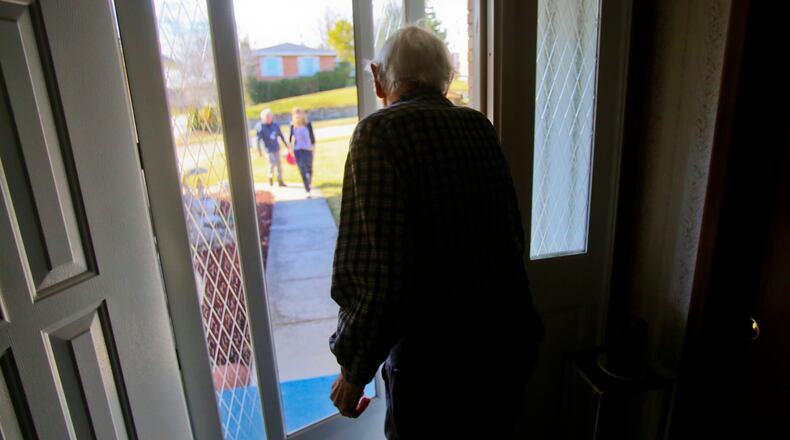They say the need for elderly supportive services has risen exponentially since the last levy increase two decades ago — the number of residents age 60-plus has grown 79% and keeps multiplying rapidly.
Council on Aging plans to ask voters for a renewal plus an additional tax levy in November.
If approved the two levies combined would cost taxpayers an additional $24.50 per $100,000 of value. The total cost would double to $50 per $100,000 — and reap $20.4 million.
“A straight renewal levy will not meet the growing needs of the population,” Ken Wilson, vice president of program operations told the county commissioners recently. “It would continue to generate $10.9 million a year and that would require a dramatic restructuring of the program and a really big gap in need within the county that we would not be able to serve.”
COA manages the elderly services levy that provides programming so seniors can stay at home as long as possible, the agency served 4,079 clients last year. It pays for services including transportation, meals, mental health, adult day services, housekeeping and repairs.
President and CEO Suzanne Burke said the senior population continues to grow but their income has stayed even. Federal funding “has decreased significantly in 2025″ and the future of that revenue stream is “fairly uncertain.”
She said they have deployed a number of cost saving measures. In 2024 they instituted a “managed enrollment” policy restricting eligible program participants. Previously residents age 60-plus who needed help with day-to-day activities and couldn’t receive services elsewhere were eligible for services, she said they needed to “tighten that up.”
Now services are only available for people receiving cancer or dialysis treatments, hospice or palliative care patients, active Adult Protective Services cases, emergency need for home delivered meals, individuals who received in-home care through Medicaid but are no longer eligible and people who were recently released from the hospital or other in-patient care facilities.
Another cost saving measure has been helping people utilize other resources because the senior levy is “the payer of last resort.”
“Over the past several years many Medicare Advantage plans have begun offering certain services for individuals on their plans,” she said. “We have been evaluating those plans and enrolling eligible clients for services such as transportation and emergency response. That saved $120,000 for the levy in 2024.”
The COA is an independent agency but the commissioners must approve placing tax levies on the ballot. Commissioner T.C. Rogers said the COA needs to make sure the public understands “the needs are going to be great and that the rapidly growing population of over 85, that’s spellbinding.”
Commissioner Cindy Carpenter asked if the levy succeeds whether they can both ease the enrollment restrictions and handle the growing population. The answer was yes.
There’s another aspect of keeping the elderly in their homes longer the COA can’t control. The pandemic-induced property value explosion in counties where values were reevaluated two years ago prompted soaring property taxes for many. Seniors on fixed incomes have been particularly hard hit.
Commissioner Don Dixon has been one of the leaders pushing for a solution to out-of-control property taxes, he noted this levy request is kind of a “double edged sword.” He asked them to enlist Miami University — they work closely with the Scripps Gerontology Center there — to get lawmakers to act “because they have a lot of clout.”
“It seems like we’re trying to push the rope uphill because we’re saying we’re going to give more services and try to keep them in their homes and we turn around and raise their taxes,” Dixon said.
Burke assured him they have been. The commissioners still need to vote on placing the levy on the ballot.
About the Author
